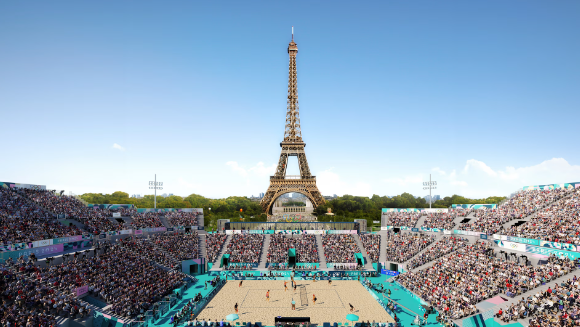Breaking the Mould: how Paris Olympics successfully embraced traditional and modern
August 20, 2024
As France hosted the hip-hop Olympics and broke every coverage record, David Granger, director of Arc & Foundry looks back at the highs, the lows and the breaking.
As the baton passes across the Atlantic, as LA takes over from La belle France, as the Olympics goes to Hollywood, how will Paris 2024 be remembered? And what lessons can be learned from the good, the bad and the breaking for future coverage and partnership activation?
The XXXIII Olympiad set out its stall with an opening ceremony which fiercely divided opinion, bringing heavy metal to historical settings and revealing a deep lack of knowledge amongst some viewers. It also had its critics when the athletes arrived by boat, rather than traditional track parade – and during the event there was the odd disgruntled Parisian and tourist, inconvenienced by the boarding up of the Eiffel Tower and lack of boat rides along the Seine. It may have been a contentious start, but not one which was subsequently affected coverage.
Looking back, the uptake, interaction and consumption globally was beyond even the most optimistic of expectations.
Top six stats?
- In the UK BBC Sport had 36.1 million viewers watched 15 minutes or more of the Paris Olympics on BBC TV – equivalent to 59% of the UK population.
- In the US, NBC averaged 32.2 million daily viewers – a 76% rise from the Tokyo Games
- In France, the opening ceremony was seen by 24.4 million viewers the most-watched event on French TV
- The official social media handles had more than over 12 billion engagements, more than double that of Tokyo 2020
- The Olympics was the No. 1 sports app in over 70 countries and the top used overall in key markets, including the USA, France and Italy
- The IOC president Thomas Bach said half the world’s eight billion population will have tuned into the 2024 edition or connected with it on social networks
But… not everything was sporting and not everything was planned content.
From those opening controversies there followed a series of arguments which were more fuel for social rage as subject for sporting commentary. From Algerian boxer Imane Khelif to French pole vaulter Anthony Ammirati’s anatomy and from French diver Jules Bouyer’s swimsuit to Turkey shooter Yusuf Dikec, the online debates and opinions came thick and fast.
They weren’t always warranted, they weren’t always in the spirit of the games, and for much of the time they were not related to sport. The debate rages as to whether Australia’s b-girls were inspired or put off by their athlete, Raygun. The irony of that event of course is that it won’t be contested in the US, the home of hip-hop culture which spawned break dancing. (In its place? Cricket. An interesting substitution).
In fact, arguably, Paris was the hip hop Olympics. Not only did rap luminaries such as Ice T wade into the breaking conversation, but Public Enemy’s Flavor Flav was a cheerleader for the US Women’s Water Polo team and then… and then there was Snoop Dogg.
Whoever came up with the concept of sending Calvin Cordozar Broadus Jr. (or Snoop Dogg to his fans) along to France needs to get a bonus equal to the pay day the West Coast rapper allegedly received. From torch bearer to closing ceremony and everything in between, including full equestrian get up, the man Molly Solomon, NBC’s executive producer of the Olympics described as an “ambassador of happiness” brought a whole new level of insight, information and entertainment to the event. And not just for the US audiences.
He was quite excellent at bringing not only the games, but the spirit of the games to audiences.
After the misfortunate which Covid cast over the Tokyo games, the Olympics were looking to re-set and Paris did exactly that. From the spectacle of the ceremonies to the full houses and sporting triumphs, it delivered.
The organisers and the athletes demonstrated that there is still exceptional return on the investment for those involved, but also it can appeal across channels and across demographics. LA has a tough act to follow. Paris brought the ancient venues, the traditional sports and the modern games and ensured sport triumphed in terms of coverage, athleticism and engagement, right across the demographics.
Sources
www.olympics.com
www.poynter.org
www.bbc.co.uk/sport
www.deadline.com
www.forbes.com



